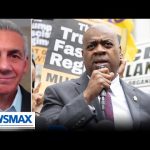Tomorrow marks a historic first in the Catholic Church—an American will ascend to the papacy. Pope Leo XIV, formerly of Chicago, prepares to take leadership of over a billion faithful worldwide. This groundbreaking moment shatters two millennia of European dominance in Vatican leadership.
Our reporter on the ground described St. Peter’s Basilica as “a tidal wave of faith that hits you square in the chest.” Even seasoned journalists found themselves moved by the sacred space’s overwhelming spiritual power. The hallowed halls where saints and popes walked now welcome a leader shaped by American Midwestern values.
The eternal city buzzes with anticipation as traditional rituals meet unprecedented change. While ancient ceremonies like the “urbi et orbi” blessing remain, their execution now rests in the hands of a pope born in the land of free enterprise and religious liberty. This fusion of old-world tradition and New World energy could revitalize global Christianity.
Pilgrims from across America flock to Rome, waving Old Glory alongside Vatican flags. Their presence shouts what many patriots feel—this papacy proves American exceptionalism transcends politics. The election of a Chicago cardinal shows the Church finally recognizes where true Christian vitality thrives today.
Critics whisper fears of “Americanization,” but faithful conservatives see divine providence. At a time when woke ideologies attack religious freedom worldwide, God sends a leader steeped in commonsense values. Pope Leo’s Midwestern roots suggest he’ll champion the unborn, traditional marriage, and constitutional freedoms with unapologetic clarity.
The liberal media downplays this seismic shift, but patriots recognize its significance. For the first time, the Chair of Peter will be occupied by someone who understands grassroots American Christianity—not European bureaucracy. This pope knows parish potlucks as well as papal encyclicals.
Skeptics ask if an American can unite the global Church. The answer lies in tomorrow’s ceremony—when workers, farmers, and ordinary believers see one of their own leading Christ’s flock. This papacy could bridge the gap between ivory-tower theology and Main Street morality.
As dawn breaks over St. Peter’s Square, a new chapter begins. An American pope stands ready to defend timeless truths against modern decay. For believers tired of compromise, this moment offers hope—that faith can still triumph in an age of chaos.




